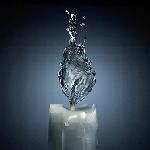The Brain Damage We Have Incurred
The Brain Damage We Have Incurred
Warning. If you are likely to get depressed learning about the physical brain damage you have incurred, read no further.
Good article this week from Dr. Park. Be sure to also read the links in his article:
http://doctorstevenpark.com/sleep-apnea ... n-damage-2
Other articles:
http://newsroom.ucla.edu/portal/ucla/uc ... 51534.aspx
http://doctorstevenpark.com/sleep-apnea ... rs-disease
http://www.physorg.com/news184169963.html
Good article this week from Dr. Park. Be sure to also read the links in his article:
http://doctorstevenpark.com/sleep-apnea ... n-damage-2
Other articles:
http://newsroom.ucla.edu/portal/ucla/uc ... 51534.aspx
http://doctorstevenpark.com/sleep-apnea ... rs-disease
http://www.physorg.com/news184169963.html
_________________
| Mask: Hybrid Full Face CPAP Mask with Nasal Pillows and Headgear |
| Additional Comments: M Series Integrated Humidifier |
Rooster
I have a vision that we will figure out an easy way to ensure that children develop wide, deep, healthy and attractive jaws and then obstructive sleep apnea becomes an obscure bit of history.https://www.youtube.com/watch?v=0ycw4uaX ... re=related
I have a vision that we will figure out an easy way to ensure that children develop wide, deep, healthy and attractive jaws and then obstructive sleep apnea becomes an obscure bit of history.https://www.youtube.com/watch?v=0ycw4uaX ... re=related
- rested gal
- Posts: 12883
- Joined: Thu Sep 09, 2004 10:14 pm
- Location: Tennessee
Re: The Brain Damage We Have Incurred
Since you've already warned 'em, rooster... I'll add to the depressing atmosphere with some old links I've posted a few times:
Jul 21, 2005 subject: Brain Fog topic started by DCTom
viewtopic.php?p=29599
One of the links (which unfortunately no longer works) was to this:
Editorial in Journal of Sleep 2004 titled "Residual Sleepiness in Patients with Optimally Treated Sleep Apnea: a Case for Hypoxia-Induced Oxidative Brain Injury"
Excerpt from the editorial:
"Thirdly, chronic exposure to the features of OSA, such as repetitive intermittent hypoxia, arousals from sleep, or both, could cause neuronal dysfunction. The increased cell apoptosis, which occurs in the hippocampus and cortex of rats chronically exposed to intermittent hypoxia, supports this latter suggestion.[9] Indeed, in these animals, the neuronal dysfunction has been shown to be in the C1A hippocampal region, an area known to be associated with spatial memory and susceptible to hypoxic damage. Interestingly, in this study, the impaired ability to perform spatial memory tasks was only partially reversed after 14 days of normoxia, suggesting residual damage.
In patients with OSA, focal lesions have been detected in the left hippocampus[10] and in more diffuse areas of the brain[11]; as yet, these changes have not been linked to functional consequences. Further research will doubtless explore these tantalizing links between changesin brain morphology and the neurocognitive functional consequences."
_______________
A couple of other links, which do still work (so far):
High Altitude Study
(There are little forward/backward arrows above the article to "turn" pages.) Below is an excerpt from page 439:
"Interestingly, a few studies have even reported that some of the changes in performance after exposures to extreme altitudes persist for up to a year or longer after return to lower altitudes, although much debate surrounds this issue (Bahrke and Shukitt-Hale, 1993)."
"Cause or Effect? Gray Matter Loss in OSA Patients" Article from Pulmonary Reviews
From the article:
LOS ANGELES — The brains of patients with obstructive sleep apnea (OSA) appear to have decreased amounts of cerebral gray matter, researchers have found.[1] Whether the loss of gray matter contributes to OSA or vice versa is not known, but reduced gray matter may perpetuate the dysfunction of upper airway muscles.
Investigators from the Department of Neurobiology at the University of California in Los Angeles used magnetic resonance imaging (MRI) to compare the brain morphologies of 21 men who had documented OSA and 21 healthy controls. The control group also underwent sleep studies to verify the presence or absence of breathing disturbances.
The MRI scans were analyzed using morphometry designed to detect regional gray matter volume changes. Volume measurements were calculated for white matter, gray matter, the two combined, and cerebrospinal fluid.
DIFFERENCES IN GRAY MATTER
The OSA patients had significantly less gray matter than did the control group. The extent of gray matter loss increased with the severity of OSA. Differences in gray matter between the two groups varied from 2% to 18%, depending on which region of the brain was examined.
There were no between-group differences in white matter or cerebrospinal fluid. Because of the decrease in gray matter in the OSA patients, however, the ratio of total gray-to-white matter volume was significantly greater in the control group. In this group, but not in the OSA patients, the ratio of gray-to-white matter volume declined significantly with age.
WHICH CAME FIRST?
According to the researchers, the results of this study suggest two possibilities. The first is that gray matter loss is a consequence of apnea, and the second, that preexisting gray matter abnormalities contribute to the emergence or maintenance of OSA.[1] Damage to certain areas of the brain may play a role in the cognitive deficits that sometimes accompany OSA.
The investigators noted that at least some changes in the brains of patients with OSA may have resulted from the hypoxia that, along with hypercapnia and elevated blood pressure, occurs during episodes of OSA. Peripheral tissue oxygen saturation during apneic episodes in severe OSA can fall to 70% or less. Repeated episodes of hypoxia can damage gray matter, and patients with OSA have reduced cerebral blood flow.[1]
Conversely, reduced regional gray matter may have preceded OSA and contributed to its development. Reductions in gray matter can be congenital or acquired. This study found gray matter loss with age in the control group but not the OSA group, suggesting that damage to gray matter occurs early in OSA patients. Additionally, in a number of medical conditions, cerebellar damage results in a high incidence of sleep-disordered breathing.
We are left with the question of whether brain changes are a result of OSA or whether they precede it. In an editorial, David Gozal, MD, asked, “Is it the chicken or is it the egg?”[2] For now, he wrote, we can only speculate.
—Gale Jurasek
References
1. Macey PM, Henderson LA, Macey KE, et al. Brain morphology associated with obstructive sleep apnea. Am J Respir Crit Care Med. 2002;166:1382-1387.
2. Gozal D. The brain in sleep-disordered breathing: is it the chicken or is it the egg? Am J Respir Crit Care Med. 2002;166:1305-1306.
Jul 21, 2005 subject: Brain Fog topic started by DCTom
viewtopic.php?p=29599
One of the links (which unfortunately no longer works) was to this:
Editorial in Journal of Sleep 2004 titled "Residual Sleepiness in Patients with Optimally Treated Sleep Apnea: a Case for Hypoxia-Induced Oxidative Brain Injury"
Excerpt from the editorial:
"Thirdly, chronic exposure to the features of OSA, such as repetitive intermittent hypoxia, arousals from sleep, or both, could cause neuronal dysfunction. The increased cell apoptosis, which occurs in the hippocampus and cortex of rats chronically exposed to intermittent hypoxia, supports this latter suggestion.[9] Indeed, in these animals, the neuronal dysfunction has been shown to be in the C1A hippocampal region, an area known to be associated with spatial memory and susceptible to hypoxic damage. Interestingly, in this study, the impaired ability to perform spatial memory tasks was only partially reversed after 14 days of normoxia, suggesting residual damage.
In patients with OSA, focal lesions have been detected in the left hippocampus[10] and in more diffuse areas of the brain[11]; as yet, these changes have not been linked to functional consequences. Further research will doubtless explore these tantalizing links between changesin brain morphology and the neurocognitive functional consequences."
_______________
A couple of other links, which do still work (so far):
High Altitude Study
(There are little forward/backward arrows above the article to "turn" pages.) Below is an excerpt from page 439:
"Interestingly, a few studies have even reported that some of the changes in performance after exposures to extreme altitudes persist for up to a year or longer after return to lower altitudes, although much debate surrounds this issue (Bahrke and Shukitt-Hale, 1993)."
"Cause or Effect? Gray Matter Loss in OSA Patients" Article from Pulmonary Reviews
From the article:
LOS ANGELES — The brains of patients with obstructive sleep apnea (OSA) appear to have decreased amounts of cerebral gray matter, researchers have found.[1] Whether the loss of gray matter contributes to OSA or vice versa is not known, but reduced gray matter may perpetuate the dysfunction of upper airway muscles.
Investigators from the Department of Neurobiology at the University of California in Los Angeles used magnetic resonance imaging (MRI) to compare the brain morphologies of 21 men who had documented OSA and 21 healthy controls. The control group also underwent sleep studies to verify the presence or absence of breathing disturbances.
The MRI scans were analyzed using morphometry designed to detect regional gray matter volume changes. Volume measurements were calculated for white matter, gray matter, the two combined, and cerebrospinal fluid.
DIFFERENCES IN GRAY MATTER
The OSA patients had significantly less gray matter than did the control group. The extent of gray matter loss increased with the severity of OSA. Differences in gray matter between the two groups varied from 2% to 18%, depending on which region of the brain was examined.
There were no between-group differences in white matter or cerebrospinal fluid. Because of the decrease in gray matter in the OSA patients, however, the ratio of total gray-to-white matter volume was significantly greater in the control group. In this group, but not in the OSA patients, the ratio of gray-to-white matter volume declined significantly with age.
WHICH CAME FIRST?
According to the researchers, the results of this study suggest two possibilities. The first is that gray matter loss is a consequence of apnea, and the second, that preexisting gray matter abnormalities contribute to the emergence or maintenance of OSA.[1] Damage to certain areas of the brain may play a role in the cognitive deficits that sometimes accompany OSA.
The investigators noted that at least some changes in the brains of patients with OSA may have resulted from the hypoxia that, along with hypercapnia and elevated blood pressure, occurs during episodes of OSA. Peripheral tissue oxygen saturation during apneic episodes in severe OSA can fall to 70% or less. Repeated episodes of hypoxia can damage gray matter, and patients with OSA have reduced cerebral blood flow.[1]
Conversely, reduced regional gray matter may have preceded OSA and contributed to its development. Reductions in gray matter can be congenital or acquired. This study found gray matter loss with age in the control group but not the OSA group, suggesting that damage to gray matter occurs early in OSA patients. Additionally, in a number of medical conditions, cerebellar damage results in a high incidence of sleep-disordered breathing.
We are left with the question of whether brain changes are a result of OSA or whether they precede it. In an editorial, David Gozal, MD, asked, “Is it the chicken or is it the egg?”[2] For now, he wrote, we can only speculate.
—Gale Jurasek
References
1. Macey PM, Henderson LA, Macey KE, et al. Brain morphology associated with obstructive sleep apnea. Am J Respir Crit Care Med. 2002;166:1382-1387.
2. Gozal D. The brain in sleep-disordered breathing: is it the chicken or is it the egg? Am J Respir Crit Care Med. 2002;166:1305-1306.
ResMed S9 VPAP Auto (ASV)
Humidifier: Integrated + Climate Control hose
Mask: Aeiomed Headrest (deconstructed, with homemade straps
3M painters tape over mouth
ALL LINKS by rested gal:
viewtopic.php?t=17435
Humidifier: Integrated + Climate Control hose
Mask: Aeiomed Headrest (deconstructed, with homemade straps
3M painters tape over mouth
ALL LINKS by rested gal:
viewtopic.php?t=17435
Re: The Brain Damage We Have Incurred
And then remember, the latest research shows that we create new brain cells and make new neural connections throughout our life. I believe these processes are re-started or at least aren't blocked when our SDB is effectively treated and we are consuming the raw materials needed for those new cells and neural networks...IMHO this is the basis for the recovery of brain function that many of us have experienced. I would like to see a study of the results of CPAP therapy before and after as I think it would be another incentive to stay the course for those challenged to make CPAP therapy work.
@ Rested Gal, the rat study before and after was 14 days...IMHO, it might take a whole lot longer for our far more complex brain for recovery. Sure wish we had more 'after' effective CPAP therapy studies but I just gotta accept they're just beginning to understand the damage in the 'before' phase...not that I want immediate answers to the question how much brain function can I expect to recover or anything
@ Rested Gal, the rat study before and after was 14 days...IMHO, it might take a whole lot longer for our far more complex brain for recovery. Sure wish we had more 'after' effective CPAP therapy studies but I just gotta accept they're just beginning to understand the damage in the 'before' phase...not that I want immediate answers to the question how much brain function can I expect to recover or anything
_________________
| Mask: Hybrid Full Face CPAP Mask with Nasal Pillows and Headgear |
| Humidifier: HumidAire H4i™ Heated Humidifier |
| Additional Comments: Started Aug '07 CPAP Escape at 11 then 9, S9 APAP range 9.8-16, now 10-17 |
Last edited by Muse-Inc on Fri Feb 05, 2010 10:14 pm, edited 1 time in total.
ResMed S9 range 9.8-17, RespCare Hybrid FFM
Never, never, never, never say never.
Never, never, never, never say never.
- rested gal
- Posts: 12883
- Joined: Thu Sep 09, 2004 10:14 pm
- Location: Tennessee
Re: The Brain Damage We Have Incurred
Nor do I!!!Muse-Inc wrote:...not that I want immediate answers to the question how much brain function can I expect to recover or anything
Certainly not when I consider the 50 +/- untreated years I had, beginning in my early teens, at least.
ResMed S9 VPAP Auto (ASV)
Humidifier: Integrated + Climate Control hose
Mask: Aeiomed Headrest (deconstructed, with homemade straps
3M painters tape over mouth
ALL LINKS by rested gal:
viewtopic.php?t=17435
Humidifier: Integrated + Climate Control hose
Mask: Aeiomed Headrest (deconstructed, with homemade straps
3M painters tape over mouth
ALL LINKS by rested gal:
viewtopic.php?t=17435
-
oregonclaire
- Posts: 3
- Joined: Thu Feb 04, 2010 7:09 pm
- Location: Portland OR
Re: The Brain Damage We Have Incurred
Wow this is super timely, as I was about to start peppering the board with my questions on this very topic! To summarize, basically I am suspicious that my short term memory and ability to learn stuff (in this case, a foreign language), as well as being unable to recall words ("tip of the tongue" only it happens all the time) - are related to sleep apnea. In my case, what I'm really wondering is if the damage is permanent? I am of the opinion that I've been suffering from sleep apnea for about five years (that's when I started to complain to my GP about being fatigued all the darned time and when my husband says he started noticing I stop breathing at night) and I'm now 30. I guess only time will tell, but it sure is frustrating.
Re: The Brain Damage We Have Incurred
Does this mean I'll never understand the TV show "Lost"?
Re: The Brain Damage We Have Incurred
My brain is recovering..slowly, consistently, nicely. I still have short-term memory problems. I can now easily read Scientific American and technical articles with pleasure and understand 'em...I just gave up in tears before because they just didn't make sense. There is hope!!!
_________________
| Mask: Hybrid Full Face CPAP Mask with Nasal Pillows and Headgear |
| Humidifier: HumidAire H4i™ Heated Humidifier |
| Additional Comments: Started Aug '07 CPAP Escape at 11 then 9, S9 APAP range 9.8-16, now 10-17 |
Last edited by Muse-Inc on Fri Feb 05, 2010 11:02 pm, edited 1 time in total.
ResMed S9 range 9.8-17, RespCare Hybrid FFM
Never, never, never, never say never.
Never, never, never, never say never.
Re: The Brain Damage We Have Incurred
You are hopeless jnk, hopeless . I watched the pilot until they had jet engines separated from the wing, upside down, yet still running. Propeller-head buddy & I looked at each other burst out laughing and switched channels.jnk wrote:Does this mean I'll never understand the TV show "Lost"?
_________________
| Mask: Hybrid Full Face CPAP Mask with Nasal Pillows and Headgear |
| Humidifier: HumidAire H4i™ Heated Humidifier |
| Additional Comments: Started Aug '07 CPAP Escape at 11 then 9, S9 APAP range 9.8-16, now 10-17 |
ResMed S9 range 9.8-17, RespCare Hybrid FFM
Never, never, never, never say never.
Never, never, never, never say never.
Re: The Brain Damage We Have Incurred
Since my hubby is an "older gentleman", I attributed his memory loss and generally not "getting it" with aging and some of that is true, but when he was diagnosed with OSA I was hoping he'd get some of it back with proper treatment. But,alas, although he has regained a lot of his energy,sense of humor,now reads again,and is more involved with our daily routine, his mental sharpness has not improved much. But I'm very grateful to have the best part of him back.
_________________
| Mask: Mirage Quattro™ Full Face CPAP Mask with Headgear |
| Humidifier: HumidAire H4i™ Heated Humidifier |
| Additional Comments: 14/8.4,PS=4, UMFF, 02@2L, |
"Do or Do Not-There Is No Try"-"Yoda"
"We are what we repeatedly do,so excellence
is not an act but a habit"-"Aristotle"
DEAR HUBBY BEGAN CPAP 9/2/08
"We are what we repeatedly do,so excellence
is not an act but a habit"-"Aristotle"
DEAR HUBBY BEGAN CPAP 9/2/08
Re: The Brain Damage We Have Incurred
Rooster I was always asked by my relatives if I was brain damaged when I was a child. Just because I wasn't a conformist then and still not. I sure didn't need sleep apnea to follow up my late teen years and kill off what brain cells I hadn't already 12 ounces at a time.
Gerry
Gerry
_________________
| Machine: ResMed AirSense™ 10 AutoSet™ CPAP Machine with HumidAir™ Heated Humidifier |
| Mask: ResMed AirFit™ F30 Full Face CPAP Mask with Headgear |
- JohnBFisher
- Posts: 3821
- Joined: Wed Oct 14, 2009 6:33 am
Re: The Brain Damage We Have Incurred
Whoa! Before we lay everything at the feet of sleep apnea, please remember that ANYTHING that might impact brain function can contribute to exactly those same symptoms.oregonclaire wrote:... To summarize, basically I am suspicious that my short term memory and ability to learn stuff (in this case, a foreign language), as well as being unable to recall words ("tip of the tongue" only it happens all the time) - are related to sleep apnea. ...
What other things can contribute? Well, what about age. Sorry, but even at 30 you can start to notice changes in your ability to concentrate, to remember, to learn new languages, to recall words, etc. In fact the window to easily learn a new language closes before your 8th birthday, if I remember correctly. This is both due to changes in the brain development and simply the fact that you are no longer in school. Learning results from a habit of behavior, not just ability.
What other things? Well, other health related issues can contribute. Others here will point out that hormones can and do influence many factors in our lives. That changes as we age. Though I do not place as much emphasis on a single item. The fact is that our bodies consist of many different systems working together and offsetting one another. An imbalance in one tends to be compensated by other systems.
What about diabetes and hypertension and ... Ah! And don't forget about stress! Or an increasingly busy life as we age. Or ... Yikes! What doesn't impact our brains? Not much!! The fact is that how we experience the world is both regulated by our brain and impacts our brain.
I do not dismiss sleep apnea as a contributing factor to decreased metal accuity. Just remember that there are other things that can contribute.
Of course it is. For two reasons. At about 30 you first start to notice that you are mortal. It's both perfectly normal, perfectly understandable and something you will get pat.oregonclaire wrote:... In my case, what I'm really wondering is if the damage is permanent? I am of the opinion that I've been suffering from sleep apnea for about five years (that's when I started to complain to my GP about being fatigued all the darned time and when my husband says he started noticing I stop breathing at night) and I'm now 30. I guess only time will tell, but it sure is frustrating. ...
But the REALLY, REALLY great news is that our brains are AMAZINGLY resilient !!
Yes, sleep apnea can cause brain damage. But study after study shows that a continued effort to learn and grwo helps the brain maintain itself in spite of the damage due to age or medical condition. So, TREAT the apnea and then get with it on those crossword puzzles and Suduko games and puzzle games (such as the Myst series) and reading and science shows and lectures and movies and theatre shows and chats with friends and ... well... LIVING !!!
Doubt this? It took all of a couple minutes to find the following study on the ability of the brain to maintain function, regardless of age. Though it has the fun title of "Maximum (prior) brain size, not atrophy, correlates with cognition in community-dwelling older people: a cross-sectional neuroimaging study", it shows that if we keep ourselves mentally active before and after some damage, we generally maintain our ability more than the damage causes. The damage CAN overwhelm our ability to adapt. But that is surprisingly rare. In fact with just five years of apnea (even severe) you can rebound. It takes effort. And it can take time (as Muse notes). But you definitely can rebound.
I love to tell the story of my wife's aunt, who took computer courses in her 80s because she wanted to better understand those blasted things! And led a book club. And helped teach first aid. And ... Well, in her 80s she was more mentally active than many in their 20s and 30s. It's just a matter of habit. And you definitely, definitely can rebound once you treat the apnea.
Here's the link to that article (it takes a while to download):
http://www.biomedcentral.com/content/pd ... 8-9-12.pdf
The study concludes:
Individual differences in normal cognitive ageing are more strongly related to prior brain size, and its association with general cognitive ability, than as a consequence of brain atrophy. Researchers and clinicians should therefore be cautious of interpreting global brain atrophy on neuroimaging as contributing to cognitive status in older age without taking into account prior mental ability and brain size.
_________________
| Mask: Quattro™ FX Full Face CPAP Mask with Headgear |
| Additional Comments: User of xPAP therapy for over 20 yrs. Resmed & Respironics ASV units with EEP=9cm-14cm H2O; PSmin=4cm H2O; PSmax=15cm H2O; Max=25cm H2O |
"I get up. I walk. I fall down. Meanwhile, I keep dancing” from Rabbi Hillel
"I wish to paint in such a manner as if I were photographing dreams." from Zdzisław Beksiński
"I wish to paint in such a manner as if I were photographing dreams." from Zdzisław Beksiński
Re: The Brain Damage We Have Incurred
JohnBFisher wrote:
The study concludes:Individual differences in normal cognitive ageing are more strongly related to prior brain size, and its association with general cognitive ability, than as a consequence of brain atrophy. Researchers and clinicians should therefore be cautious of interpreting global brain atrophy on neuroimaging as contributing to cognitive status in older age without taking into account prior mental ability and brain size.
That is a good reminder about prior mental ability and brain size.
I remember as a youngster getting started in business. One morning an age 56 sales manager, named Bill, and I had a loud clash. I asked a mentor to join me for lunch to discuss the incident.
I started out complaining, "I hope my brain doesn't decline to the point Bill's has by age 56." My mentor, who was in his sixties, said, "It has nothing to do with age. I have known Bill since he was in his twenties and he has always been stupid."
That was the end of the discussion. We had a nice relaxing lunch. Bill and I never had another clash and became good friends. Years later I worked with his son and he also became a good friend.
A little word from a mentor can be a great thing.
_________________
| Mask: Hybrid Full Face CPAP Mask with Nasal Pillows and Headgear |
| Additional Comments: M Series Integrated Humidifier |
Rooster
I have a vision that we will figure out an easy way to ensure that children develop wide, deep, healthy and attractive jaws and then obstructive sleep apnea becomes an obscure bit of history.https://www.youtube.com/watch?v=0ycw4uaX ... re=related
I have a vision that we will figure out an easy way to ensure that children develop wide, deep, healthy and attractive jaws and then obstructive sleep apnea becomes an obscure bit of history.https://www.youtube.com/watch?v=0ycw4uaX ... re=related
Re: The Brain Damage We Have Incurred
I didn't know prenatal sleep apnea was even possible.rested gal wrote:Certainly not when I consider the 50 +/- untreated years I had...
_________________
| Machine: AirSense 11 Autoset |
| Mask: ResMed AirFit™ F20 Full Face CPAP Mask with Headgear |
| Humidifier: HumidAire H4i™ Heated Humidifier |
Re: The Brain Damage We Have Incurred
I forgot what I was going to post!
_________________
| Machine: AirCurve™ 10 VAuto BiLevel Machine with HumidAir™ Heated Humidifier |
| Mask: ComfortGel Blue Nasal CPAP Mask with Headgear |
Re: The Brain Damage We Have Incurred
My memory had gotten really bad. At 41, I had no vivid memories earlier than my 20's and only a few "echoes" of major events that had been repeated in my mind over and over. Even huge chunks of my 20's and 30's were a blur.
But now, after 11 months on APAP. My memory has definitely improved. And I'm starting to recapture some of my past. Something will spark an association and I'll remember some little thing of event from my childhood.
It's almost like sleep apnea was a flood that wiped out all the bridges and roads to these old memories, but not the memories themselves. Now the water has receded and I'm slowly discovering new paths to old memories. It's been a huge comfort.
But now, after 11 months on APAP. My memory has definitely improved. And I'm starting to recapture some of my past. Something will spark an association and I'll remember some little thing of event from my childhood.
It's almost like sleep apnea was a flood that wiped out all the bridges and roads to these old memories, but not the memories themselves. Now the water has receded and I'm slowly discovering new paths to old memories. It's been a huge comfort.
_________________
| Mask: Mirage Quattro™ Full Face CPAP Mask with Headgear |
| Additional Comments: SPO PulseOx 7500. Range 10-12, A-Flex 3, Humi 1. Pad A Cheek Hose Cover (Blue w/Stars) over SleepZone Aussie Heated Hose. |
















